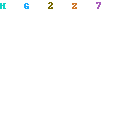This post is for those of you who see the acronym SEO and feel your throat tighten, your palms begin to sweat, and think to yourself, "ughhh, I know we need this SEO stuff for or to our website, I only wish I knew what SEO stood for!.." (And no, you're far from a dummy if you find SEO confusing - I used this title purely to help my Google page rank for this post ;)
No matter how confused you ever become about Search Engine Optimization, if you remember the following you will always be able to reorient yourself and make a quick "recovery":
Google is just a librarian...
Think of Google as the head librarian of our 21st century digital library - a library filled with all the world's websites, including yours.
Google's job is simply to provide its patrons (i.e., users of its search engine) with the best information on the topics they are searching for, usually provided in the form of website links, images or videos.
 For example, let's say a nice, eligible bachelor named Larry wants to find out what he can do to "tame" his fiery dragon breath and make it past date #1. Larry comes up to the library counter (i.e., www.google.com) and asks Google for information about Halitosis. Google, at lightning speed, runs to the Halitosis section of the "library", and grabs ALL of the websites on Halitosis. When Google returns to the counter, she places all of the Halitosis sites in front of Larry, sorting them from most relevant & most popular to least relevant & least popular.
For example, let's say a nice, eligible bachelor named Larry wants to find out what he can do to "tame" his fiery dragon breath and make it past date #1. Larry comes up to the library counter (i.e., www.google.com) and asks Google for information about Halitosis. Google, at lightning speed, runs to the Halitosis section of the "library", and grabs ALL of the websites on Halitosis. When Google returns to the counter, she places all of the Halitosis sites in front of Larry, sorting them from most relevant & most popular to least relevant & least popular.That is Google's search engine in a nutshell. (And yes, it was recently revealed by the company that Google's search engine is in fact female)
...SEO is simply good book labeling
So how does SEO come into play within this "digital library" of all the world's websites?
Think of SEO as the process of effectively labeling & categorizing your website so that Google understands what your site is about and therefore knows when to include it as part of a person's search results.
Going back to our Halitosis example, imagine there are 2 websites on the topic of bad breath. Site A's name is, "How to Eliminate Bad Breath", and site B's is, "Fighting the Enemy One Brush at a Time".
The main sections of site A (think titles of book chapters) include definitively breath-related headings like "Where bad breath comes from", "Top tips for beating Halitosis" and "Why brushing alone won't prevent bad breath". In contrast, the main sections of site B include somewhat vague, albeit more humorous headings such as, "Readying for battle", "Exorcising your tongue", and "The war within".
Which of these 2 websites do you think Google would rank higher on the list of Halitosis sites it returns to our eligible, yet breath-challenged bachelor? Unfortunately it's not the site with the more creative copywriter. Sorry.
Google's no poet, so easy on the metaphors
While Google is one heck of a librarian, she's not a mind reader - at least not yet. In other words, you need to be extremely clear and literal with your website content, especially when it comes to major headings & titles.
Think of it this way - if you're thumbing through a book trying to figure out what it's about, you're most likely going to look at the book's cover, leaflets, chapter names, and index. Google ""thumbs through" your website in much the same way. So cute and overly metaphoric titles like "Making it to date #2" will only help drag your site's Google ranking down... and with it, your website traffic.
Now that you hopefully have a better 50,000-foot view of SEO, below are a few resources that I've found to be particularly insightful for SEO newbies.
Additional SEO sources for beginners looking to get a little dirt on their hands
- Search Engine Optimization: An Hour a Day (solid book that teaches you the core principles & tactics)
- SEO Moz - beginners guide (SEO Moz is one of the best all-around SEO sites)


